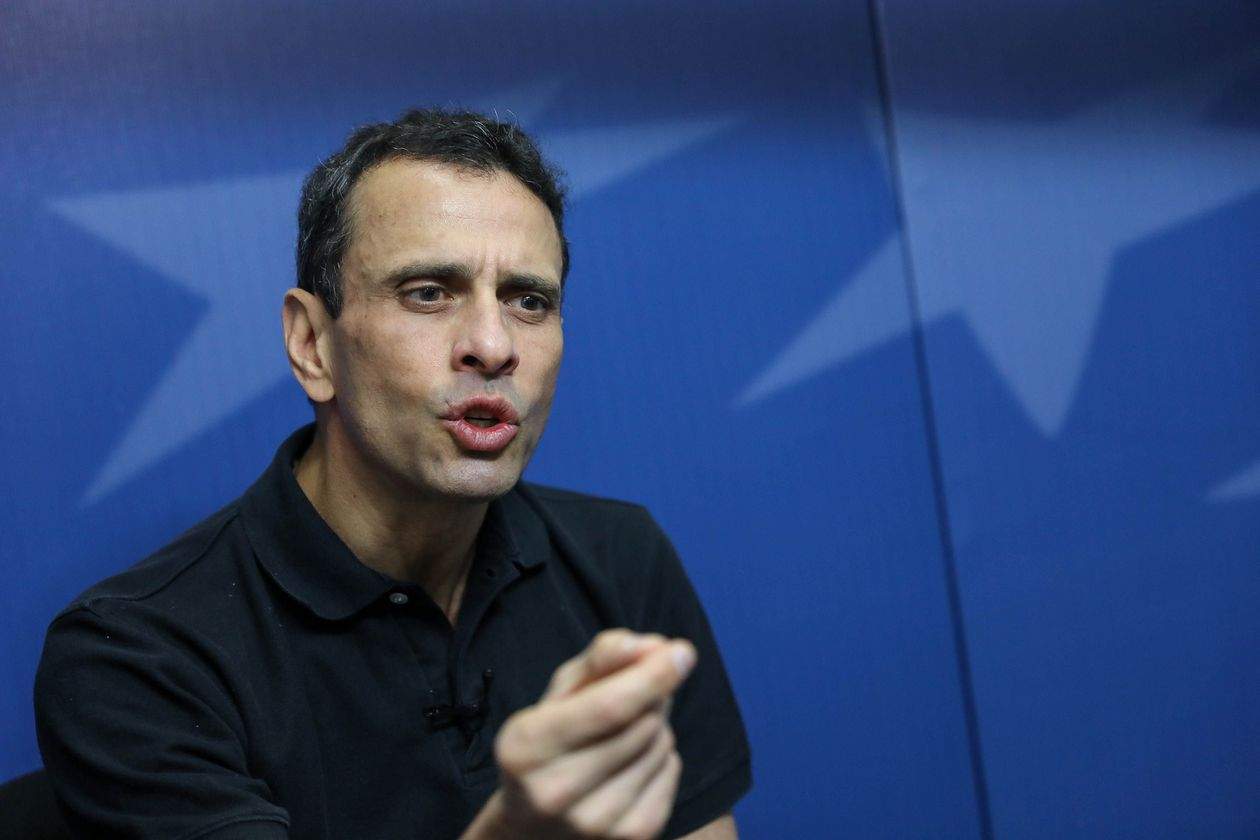Venezuelan Opposition Politician Backs Elections in Break With Guaidó
Thursday, September 3, 2020
Categories: ASCF News Emerging Threats National Preparedness

A prominent Venezuelan opposition figure on Wednesday said he is supporting congressional elections in December that Juan Guaidó, the opposition leader backed by the U.S., has pledged to boycott.
The decision by Henrique Capriles to support the elections is a major fissure in a movement that for 20 months united behind Mr. Guaidó in a struggle to remove President Nicolás Maduro from power. The U.S. and dozens of other democracies consider Mr. Guaidó to be Venezuela’s legitimate leader.
Mr. Maduro, whose authoritarian government has been the target of U.S. oil and financial sanctions, plans to hold elections for all 277 seats in the National Assembly. His political foes have called the Dec. 6 vote a cynical move to improve the regime’s democratic credentials after past vote-rigging allegations.
But on Wednesday, Mr. Capriles, a two-time presidential candidate who had once been the face of a diverse political coalition, bucked the Guaidó-led opposition. Since becoming president of the National Assembly in January 2019, Mr. Guaidó has, with American backing, advocated for increased international pressure and isolation as the best route to remove Mr. Maduro.
“We’re not going to leave the people without an option [in the elections],” Mr. Capriles said in a webcast.
Mr. Capriles said that the election should be delayed amid the pandemic. But he also said he believes the vote is a powerful tool that Venezuelans shouldn’t squander, even though he recognized the regime’s authoritarian tendencies. “We have to save Venezuela from this tragedy,” he said, “and the only way to save this country is by opening political paths.”
A State Department spokesman said Wednesday that the Maduro regime controls the electoral council, has named allies to head important opposition parties and controls the Venezuelan press. U.S. officials have in recent days stressed that Washington backs Mr. Guaidó as the country’s leading opposition leader in Venezuela.
“Venezuelans recognize that the political fraud scheduled for December will in no way be free or fair,” the spokesman said in a statement. “Maduro will continue to try to divide and exploit Venezuelans as long as he remains in the Presidential Palace in Caracas.”
Mr. Capriles can’t run for office because of a ban against him and other top opposition leaders participating in politics. But in his address, the 48-year-old said he would support opposition candidates in the December vote. There is no hope of a foreign military intervention to unseat Mr. Maduro, he said, so the opposition needs to negotiate with the regime to try to create a level playing field for future elections.
In his hourlong talk, Mr. Capriles criticized what he called blunders under the Guaidó leadership that have undermined confidence in the opposition. They included a botched raid by a mercenary force in May and a failed military uprising in April 2019.
Mr. Capriles said that boycotting elections means losing all opposition representation in congress. The opposition employed that tactic in 2005 during the National Assembly elections, with many leading critics of the regime later lamenting the move because it permitted the government to pass legislation without opposition. The opposition also boycotted the 2018 presidential election, which secured Mr. Maduro a second six-year term despite fraud allegations.
Critics of Mr. Maduro, who is viewed as a dictator by many democratic governments in Latin America and Europe, say his push for December elections is an effort to gain credibility. Mr. Maduro this week granted presidential pardons to more than 100 political activists and lawmakers, freeing dozens from prison, which Mr. Capriles said was part of the mediation effort. Mr. Maduro also invited the European Union and the United Nations to serve as election observers, something he had avoided doing before.
The EU has called for the vote to be delayed and refused to send observers, saying conditions in Venezuela aren’t adequate for elections. But Josep Borrell, foreign-policy chief for the EU, offered a nuanced appraisal, saying a precursor to any elections would be the freeing of prisoners.
An intense, monthslong pressure campaign, including U.S. sanctions barring foreign companies from investing in or transporting Venezuela’s crude oil, has weakened Mr. Maduro’s regime. But the fact that he remains in power has stoked discord in opposition ranks, with some leaders calling for a stronger efforts to court foreign military intervention. Mr. Capriles, who has said he rejects armed conflict, has sought out his own alternatives.
On Tuesday, the foreign ministry of Turkey, an ally of Mr. Maduro, said it had been consulted by Mr. Capriles about Ankara serving as an election observer. Some Venezuelan opposition lawmakers have met with Turkish and Russian diplomats in Caracas at least since July, as they seek a political transition and a pathway to stability in Venezuela.
“Trying to go it alone without the international community would not work,” said an opposition figure familiar with Turkish mediation efforts.
Mr. Capriles’s actions have been strongly criticized by Mr. Guaidó and his allies, who accuse him of putting his personal political ambitions above opposition alliance. In a statement, Mr. Guaidó said he didn’t know about talks with Turkey and didn’t support them.
“These actions were taken without the knowledge or authorization of the interim government,” Mr. Guaidó said. “We will never be open to accepting electoral agreements that do not permit the true expression of the will of the people.”
Imdat Oner, a former deputy head of Turkey’s diplomatic mission in Caracas, said that whether or not the Turkish-mediated talks are successful, Mr. Capriles’s new position has exposed fractures in the opposition.
“The only winner of the game is Maduro,” Mr. Oner said. “He’s cracked the opposition’s unity. Now nobody can restore trust between the actors.”
—Courtney McBride contributed to this article.
Photo: ‘We’re not going to leave the people without an option [in the elections],’ Venezuelan opposition figure Henrique Capriles said.
PHOTO: RAYNER PEÑA/EFE/ZUMA PRESS











